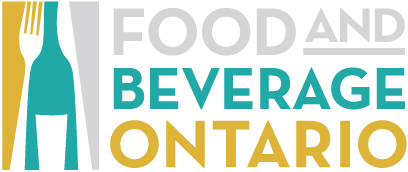The associations representing the foremost food and beverage businesses in Ontario and Quebec are partnering up.
Under an agreement announced last week, Food and Beverage Ontario (FBO) and the Conseil de la transformation alimentaire du Quebec (CTAQ) will work to develop strategic partnerships and programs aimed at increasing industry innovation, productivity and competitiveness.
They will also work to increase the profile of the food and beverage processing industry provincially and nationally, establish industry job and revenue targets, share expertise in things like marketing and best practices, and work to resolve regulatory and retail roadblocks between their provinces.
“We see this as a real collaboration on policy decisions and helping out processors on both sides of the border,” Norm Beal, FBO’s chief executive officer, told Canadian Grocer. “We also intend to fill the leadership vacuum at the federal level.”
Beal’s Quebec counterpart was equally enthusiastic about an alliance that brings together neighbouring industries that represent 5,700 companies that employ 157,000 people, generate more than $60 billion in annual sales, represent 66% of food and beverage production in Canada, represent 50% of exports, and are the largest manufacturing industries and exporters in their respective jurisdictions.
“We want to try and capitalize on the great collaborative spirit that currently exists between the premiers of our provinces on trade and many other issues,” said Sylvie Cloutier of CTAQ, whose business members represent 80% of the $23-billion food manufacturing sector in Quebec, and act as the commercial conduit for 70% of agricultural production in la belle province.
According to Cloutier, that importance is largely lost on people in Quebec, where food is a big part of social life and a cultural cornerstone.
“All the media attention and government money here goes to agriculture and the aviation and transportation industries,” she said. “But the processing sector provides more jobs than all of them.”
Both CEOs said their associations will share their expertise, experience and strengths in marketing and innovation to help their members prepare for and compete globally under the Canada-European Union Comprehensive Economic and Trade Agreement (CETA), and the Trans-Pacific Partnership (TPP) – deals that both groups supported publicly.
They also intend to lobby government to reduce and eliminate regulations that currently restrict the flow of food and beverage products between provinces.
“Both Quebec and Ontario have lots of great regional products that we can help get into each other’s markets,” said Beal. “That would be great for grocers, who want to get products people want to buy.”
That’s music to the ears of Ian Lee.
“Like many people, I argue that we should harmonize regulations across the country,” Lee, an economics professor and trade expert at Carleton University’s Sprott School of Business said from Ottawa.
“This red tape between provinces really slows things down. We need to get rid of these pernicious, harmful regulations that are disguised protectionism that add costs in the value chain.”
Lee also praised the food processors’ emphasis on innovation, and their stated desire to create a centre for innovation.
“That would help grocers downstream, because they will produce more foods that people want,” he said.
By Mark Cardwell | December 01, 2015




